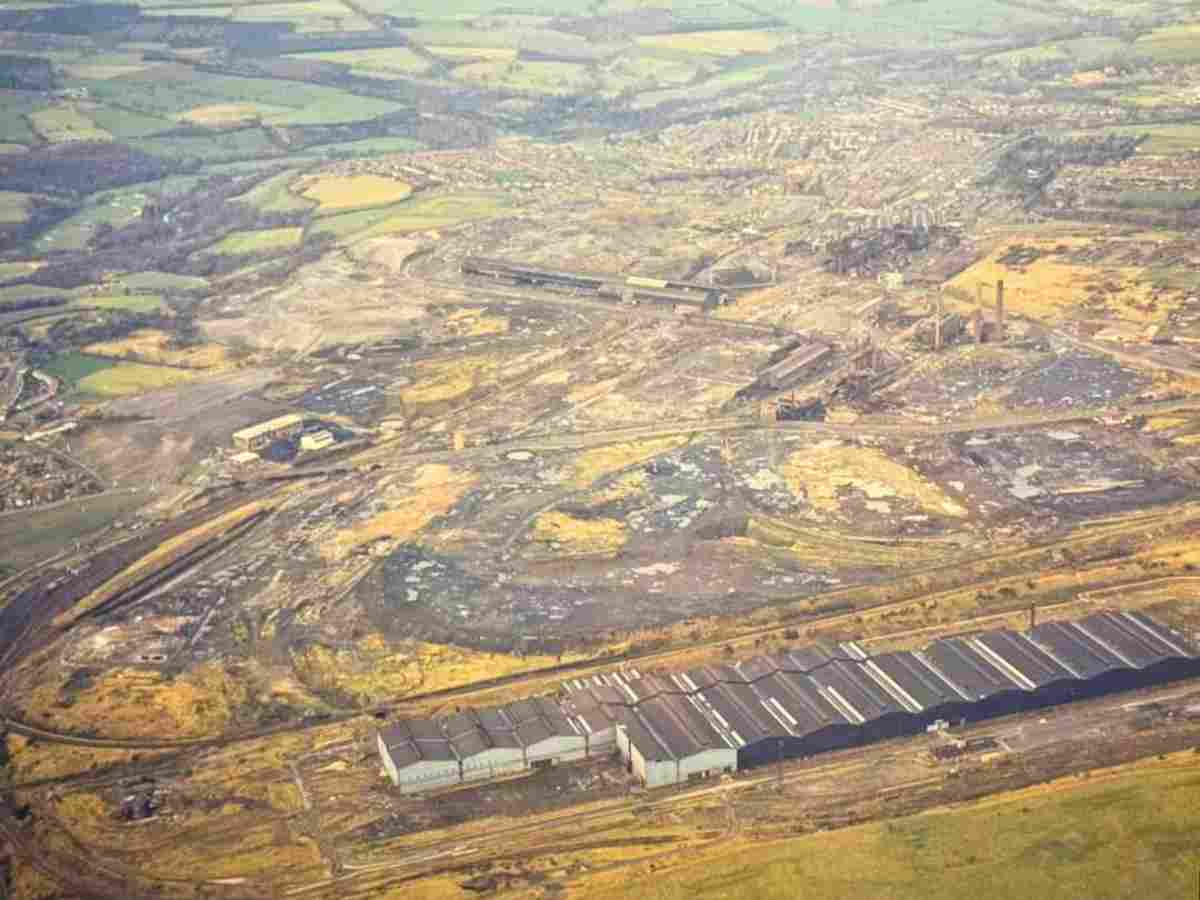Anne Harris from Coal Action Network interviews Pat Carr about his and other steelworkers’ experience in Consett in the 1980s
The scientific consensus is that we need to decarbonise heavy industry. Steelworks are amongst the worst carbon emitters. Both of the UK steelworks using coal have agreed to convert to electric arc furnaces, a process which sadly requires far fewer steelworkers. When Port Talbot stopped its coal consuming blast furnaces at the end of September there was a poor deal for the workers. British Steel and the government must do better for the workers at Scunthorpe’s steelworks, expected to turn off the blast furnaces by the end of the year.
Steelworkers: learning from the 1980s Scunthorpe closure
Former steelworker, Pat Carr, spoke to Anne Harris from Coal Action Network about the financial support offered to workers when the Consett steelworks closed in 1980, and they discussed what can be done better, in workplaces like Scunthorpe steelworks:
Pat Carr was a steel work operative at Consett Steelworks for 11 years, before all the employees were made redundant in 1980. He recalled in an interview that:
It was as good a deal as I’ve seen anywhere, the scheme that we got. I don’t think it is has bettered since and I doubt it has even been approached.
Pat felt fortunate, because at the time he was 31, with a young family to support.
The steel town Consett, County Durham, was covered by orange dust from the iron ore used at the plant. In 1980, British Steel Corporation, the nationalised steelwork operator, decided to close Consett Steelworks, seeking to prioritise coastal steelworks that could easily import iron ore and export finished products:
Abruptly, all 3,700 employees joined dole queues. Or, this would have been wholeheartedly the case, but for financial and training support offered to direct employees of the site. Grievously, an equal number of indirectly employed contractors, allied industries, and supporting businesses were not given the same assistance.
The 1970s and 1980s were a rocky time for the UK’s industrial communities, which saw mass redundancies and strikes. Pat Carr explained that:
The steelworks has always been a strange industry of peaks and troughs… There was one time, after a couple years [of employment] where I was made redundant, but it was only for a 6 week period, then trade picked up again and you’re taken back on and end up in the same place.
A ‘Just Transition’ for steelworkers
The steel industry in Consett was by far the biggest employer in the town. The town was the ideal location because it had the natural resources used to make steel using blast furnaces – iron ore, coal, and limestone:
By 1978, Consett had become a boom town, with a peak of 12,000 employed at the steelworks:
Multiple members of each family and whole streets of people, were employed by the steelworks. Meaning the loss of the major employer was going to hit extremely hard. Pat’s dad and brother worked alongside him. Of his cousin’s family he recalled that:
that was a whole family virtually, two adults and six siblings. [The steelworks employed] lots of families. Women worked all over the steelworks.
Without a significant redundancy plan deep poverty seemed inevitable.
Unusually, especially given Margaret Thatcher had been made prime minister a year before the closure, the workers were treated with respect, supported financially and with training. These area aspects of what is generally referred to as a ‘Just Transition’ for workers.
Pat continued his story:
The redundancy payments, if I can recall, were quite generous. Virtually everyone in the steelworks, even if you’d been there a year or two you got six months pay and I’m not sure you didn’t get another six months pay a year later.
This meant that much of the opposition to closing the plant, which had generated a profit in the previous year, was dissipated. He said that:
I think that was part of it. It was quite good for that time and absolutely incredible for this time to get a year’s money.
More severance pay was given when workers, who like Pat enrolled in education programs.
Retraining opened more doors
To access the full amount of financial support available workers needed to engage with education or training. However, there was free choice as to what level and subject. This was needed as some of the workers were barely literate, where as others had degree level education and above. Pat said:
My father went… he wasn’t a great scholar in his youth and he was barely literate, but he went on a course because it was a free year[’s money].”
This opened doors for the younger employees. Pat’s retraining gave him a job until retirement. He explained that:
I went down to, it is Sunderland University now. I was doing data processing… and that’s what I worked in most of the time since then, either computer programming or systems analysis.
He wasn’t the only one:
My brother did much the same… My cousin who lived down the street, he came with me on the same course… Certainly the education and training certainly helped me massively.
Of course, not everyone was interested in further education, some went to working for the steel industry elsewhere. Pat described how:
British Steel Corporation were being employed to build new steelworks in different areas of the world. In the far east and Mexico and they were building that while undercutting themselves. So there were some people who did that, went away. Then there were some people who were working on pulling the steelworks down cos that was a massive project.
Meaningful work missing from the government’s plans
Generous severance pay brought a massive boost to family wealth. Pat expressed that:
For the year afterwards [Consett] was a bit of a boom town because of course all this money was swilling around, everybody had more money that they’d ever had, in cold hard cash, but without the prospect of it going on. It meant people were getting new cars…or start buying your council house that kinda thing
But, the longer term impacts are mixed. Reflecting on the situation over 40 years later, Pat said:
I wouldn’t have jumped ship because the jobs was so good and the money was so good in the steelworks, so you would never leave it on that basis. Having been pushed into it, it wasn’t the most dreadful thing that happened to me. It worked out not too bad.
In Pat’s experience, there seems to be a part of the deal for steelworkers missing – the creation of new, meaningful work for the variety of workers in Consett:
I think that after that first 4- 5 years it definitely took a slump, the local economy. It’s virtually a dormitory town now, everyone travels to work.
Recent UK governments set up a deal with Tata Steel and are currently in talks with British Steel about the Scunthorpe plant’s conversion away from coal use, which will likely mean thousands of job losses. The TUC praised the deal for workers at Ratcliffe on Soar coal power station when it closed in September 2024, remarking:
While the UK is ending coal power with an orderly transition, the shift away from coal-based steel making is intensely chaotic. Early planning is essential if an effective transition plan is to be put in place.
Proper pay and support packages to protect steelworkers’ communities
40 years after the closure Pat doesn’t remember the full role of the trade unions, but felt that they paid for some of the package for workers, but assumes the government also contributed.
The key to a successful Just Transition is significant financial support, not just as a one-off payment but over the following years; the freedom of workers to direct their own training, rather than it being prescribed, and unlike in the Consett case, greater support for new work in the vicinity of the redundant business. An advantage for business and government, to this approach, is workers are less likely to oppose the closure if their community is protected:
Read the full transcript or listen to the interview with Pat Carr at https://www.coalaction.org.uk/2024/10/11/jt-consett-steeworks-interview/
Featured image and additional images supplied











